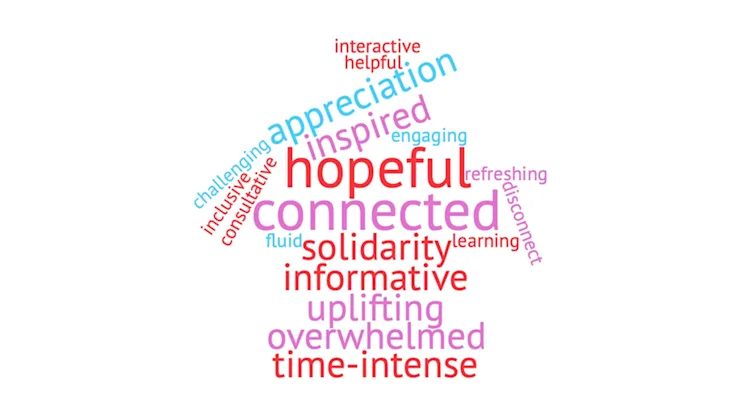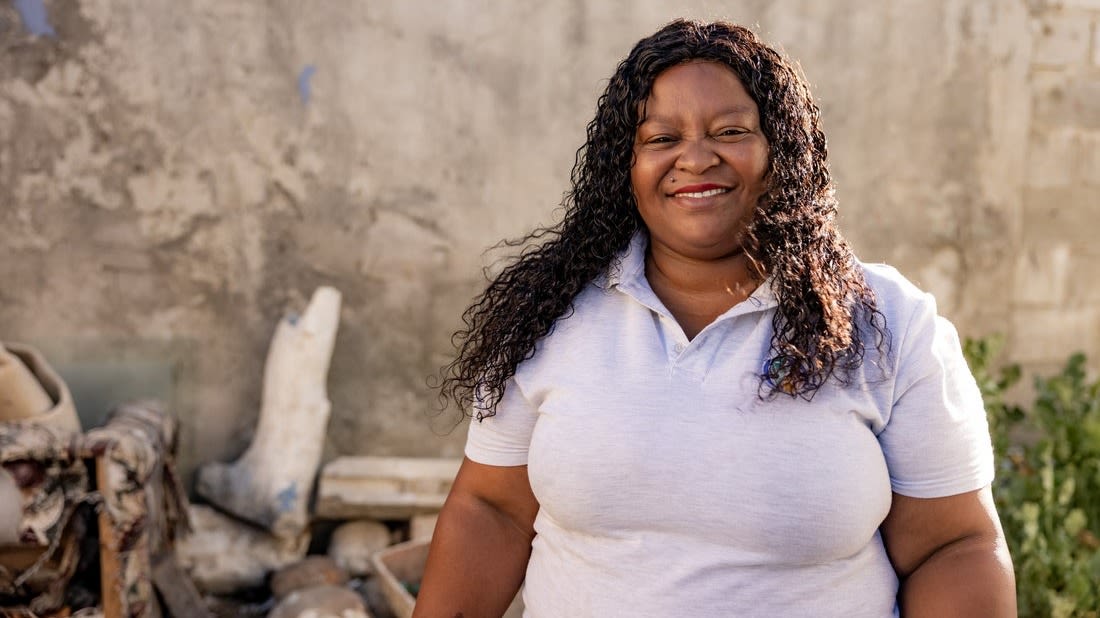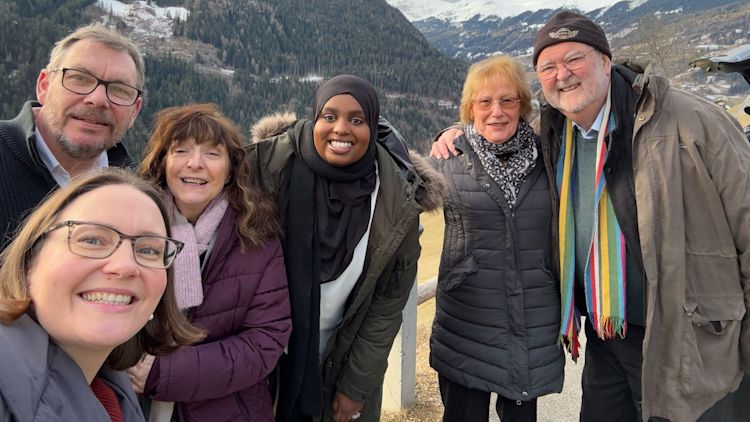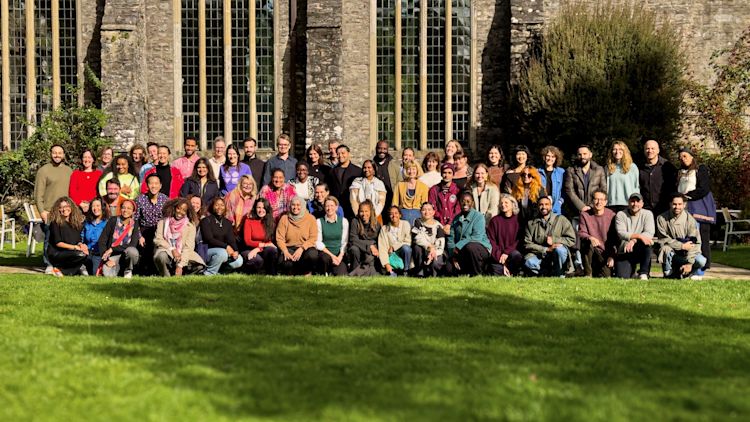This blog is the second from our Power Up initiative (the first can be found here) which supports feminist movement-related work across the UK, Sub-Saharan Africa and South Asia.
In this blog, Barbara Klugman, the learning coordinator for Power Up, reflects on how the learning programme developed during the challenges of the global pandemic.
Creating ‘community’ across diversity during Covid-19
Barbara Klugman
My initial brief as the learning coordinator for Power Up, was to convene a meeting where the grantees could shape a collective agenda for mutual engagement and learning over the three–five years of this initiative. However, Covid-19 came and dashed those plans. Instead, we followed a different path.
In March 2020, we invited people to join an opening virtual conversation to introduce themselves. It landed up offering immediate solidarity and ideas as the lockdown hit across countries. Building on this over the last seven months, we held a series of virtual discussions ranging from how groups were adapting their strategies and means of engaging their constituencies (the Power Up cohort covers a huge range of groups from informal workers to women prisoners to refugees and asylum seekers), to the challenges of monitoring and evaluation around movement-building and advocacy.
Participants’ & organisations’ responses on the experience by mid-2020
In assessing where we’ve been and where we’re going, we asked people for three words to describe the experience by July (see the word cloud below). We are pleased that people experienced the process itself as being consultative, inclusive and engaging, and leaving them feeling connected, inspired, hopeful, uplifted and with a sense of solidarity:

“The space was very warm and very safe, and participatory –we appreciated how the events were based on our feedback of what we wanted.”
“In the Covid-19 context, it was incredibly valuable –‘serenity in madness’. We could connect with each other, learn with each other, away from the day to day. We learnt how people have been coping personally; how work has managed to continue...”
“It has brought us outside our national context; you often think about your own country.”
What are we learning about creating ‘community’ under Covid?
When I applied to play this role, I was frankly both sceptical and intrigued by the idea that women’s rights groups working in and across different countries, different sectors and at different levels –some funders, some INGOs, some community-based organisations – would find common purpose. The convening would have provided a creative space for trust-building and sharing, from which we would have seen quickly whether synergies existed among groups.
The journey so far has shown, however, that most participants find it invaluable to step out of their own shoes for an hour or two, to experience the struggle for women’s rights in others’ shoes, and to use that to query and reconsider options for their own strategies. There are also wonderful moments of laughter as we learn how differently discourses play across continents. There is tremendous mutual respect and recognition that what is hard in terms of organising constituencies in one Covid context may be impossible in another –for example because of differentials in access to smart phones and data – yet at those very moments, a discovery that those on the margins are similarly affected globally.
Co-facilitator Jude Clark reflects,
“This process gives a tiny glimpse of what an online feminist community of practice would look like –it held the most positive possibilities and also the challenges of this kind of work. It provided a symbolic and real space for holding each other at a time when everyone was feeling bewildered, exhausted and isolated – in shock, trying to figure out what to do personally and organisationally. We connected, speaking and learning across numerous divides, with pros and cons. The pluses are the real support and learning and connection across global north and global south and all kinds of divides in this sector. The challenges are how we bring our power into that platform in micro-actions – little things like the pace of speaking – when there’s a pause between speaking, who feels it as an anxiety, who as a spaciousness, and who feels pressure to fill it. There are some cultural differences there around silence, patience – beautiful possibilities.”
My learning curve has been huge on how to facilitate online and ensure everyone’s experience is fully valued and heard. Having two virtuoso facilitators on my team – Jude Clark and Mumbi Nkonde – has helped balance the energy we bring to listening, learning and facilitating. After a break in recognition of global north vacation time, we have moved forward with smaller topic-specific ‘working groups’, using a deep interrogation of one organisation’s experience as the basis for deepening everyone’s insights and problem-solving. This was the mode continued through the second half of 2020, taking account of global south vacation time –in this way aiming to ensure that concern for participants’ wellbeing is built into our process.


